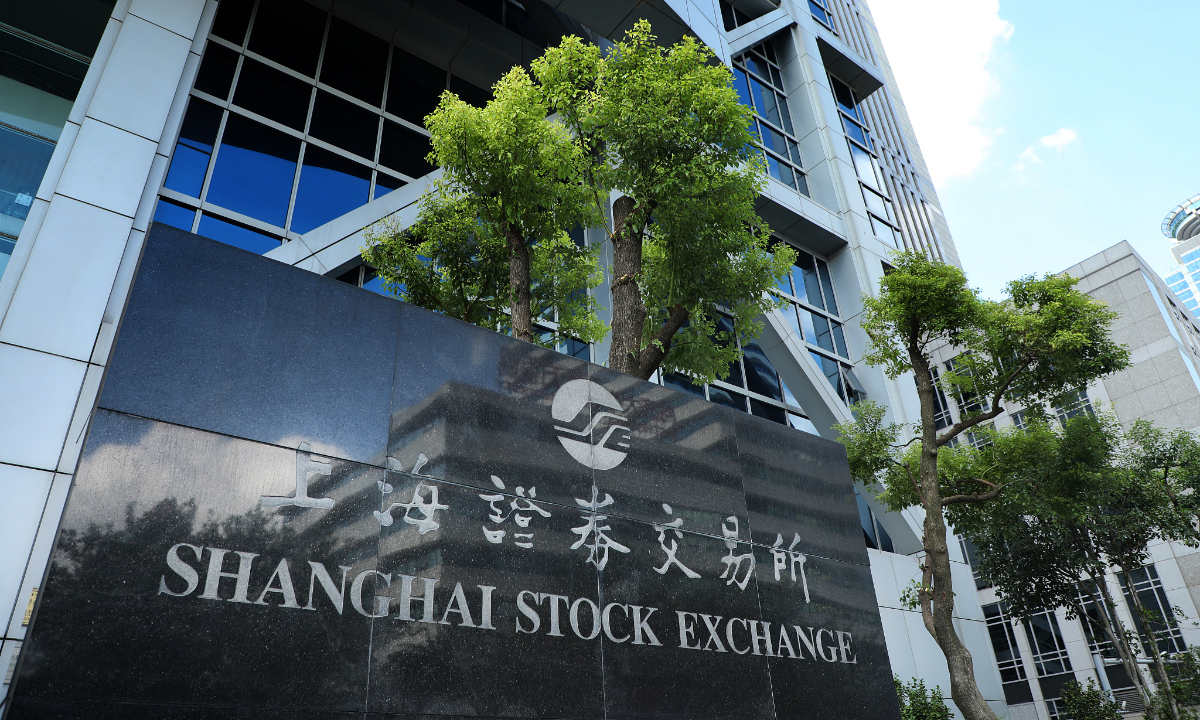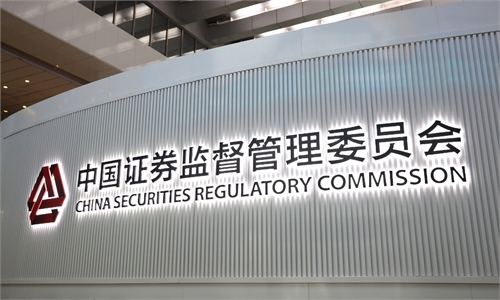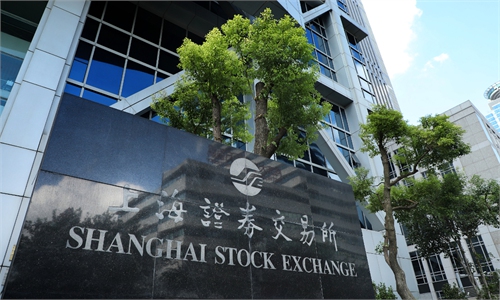China's first registration-based IPOs officially kick off trading, to benefit high-tech sector

Shanghai Stock Exchange Photo:CFP
The first 10 registration-based IPOs are set to start trading on Monday at the Shanghai and Shenzhen stock exchanges, marking the formal implementation of China's IPO system overhauls.
It marks an important step for the maturation of China's stock market, greatly strengthening the function of investment and financing of the capital market and guiding more capital into the country's technology innovation sectors, analysts said.
"The preparation for the first batch of registration-based IPO firms on the main board is basically in place. The time is ripe for them to go public," according to a statement on the website of the Shanghai Stock Exchange.
The 10 IPO companies include smart equipment maker Zhongzhong Science & Technology (Tianjin) Co, electricity operator Shaanxi Energy Investment Co and Zhejiang Haisen Pharmaceutical Co. They will either be listed on the Shanghai or Shenzhen bourse, according to Chinese media reports.
"These companies are mainly leading enterprises in traditional sectors, have science and technology advantages, and are able to create many jobs and drive the development of upstream and downstream associated enterprises, reflecting the capital market's increasing support for the real economy," Wang Peng, a research fellow at the Beijing Academy of Social Sciences, told the Global Times on Sunday.
The IPO process is longer under the current system, and there are many uncontrollable factors, which may affect companies' manufacturing and operation. As a result, many enterprises prefer direct financing via other channels, Wang said.
However, the proportion of direct financing in the capital market is expected to grow significantly, as IPOs are more efficient and predictable under the new registration-based IPO arrangement, he said.
"The implementation of the registration system also accommodates the needs of China's economic transformation by increasing support for the real economy," Yang Delong, former chief economist at Shenzhen-based First Seafront Fund Management Co, told the Global Times.
Innovative companies and technology firms are expected to enjoy more room for growth, Yang said. He said that the attractiveness of Chinese mainland stocks will continue to grow and attract overseas capital, as there are growing recession risks in the US and European countries.
About 300 to 400 billion yuan ($43.6-58.2 billion) in overseas capital is expected to flow into the A-share market in 2023, the Securities Daily reported, citing China International Capital Corp.
"The goal of the registration-based system is to deepen administrative supervision reform, and let the market and government play decisive roles in the allocation of resources," Dong Shaopeng, a senior research fellow at the Chongyang Institute for Financial Studies at Renmin University of China, told the Global Times on Sunday.
The change in China's securities regulation has entered a stage where policy-makers are pursuing deeper reforms, Dong said.
In order to reach a more market-oriented mechanism and increase efficiency, the authorities should strengthen regulatory supervision of listed firms, strengthen integrity assessment of intermediaries, and optimize rewards and penalties, according to Dong.
A meeting of the China Securities Regulatory Commission on Thursday pledged to promote deeper reform of the registration-based IPO system, unswervingly expand institutional opening-up, and improve the functions of the capital market to support the country's high-tech self-reliance and better serve high-quality economic growth.
China officially rolled out the registration-based IPO system in February 2023. The country conducted a trial of the new system on the science and technology innovation board in 2019, and expanded it to the ChiNext board in 2020 and to shares on the Beijing Stock Exchange in 2021.



